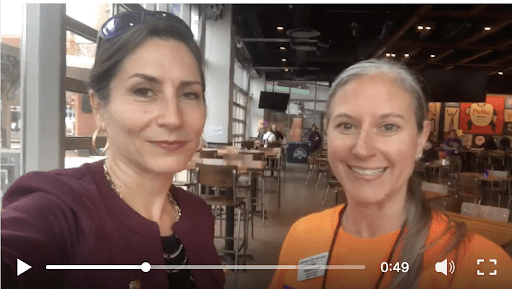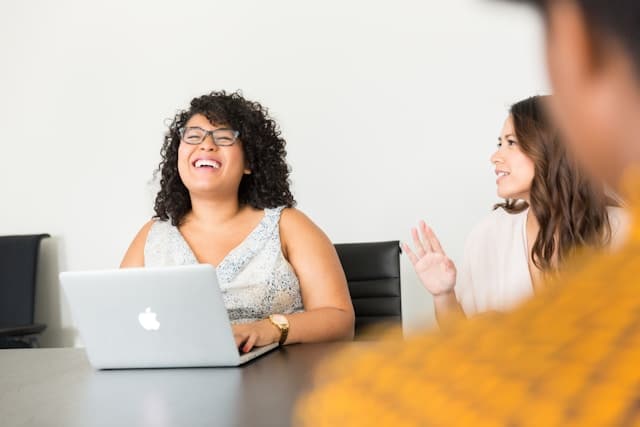I am what some might call an “accidental entrepreneur.”
Nearly 15 years ago when I was finishing grad school, I attended my cousin’s wedding. At the reception, I was chatting with a man who was also seated at my table, when another cousin came by and congratulated me on having recently defended my doctoral dissertation.
The man asked about my research, so I shared the highlights.
“You know,” he observed, “I’ve always had an interest and an instinct about what you study, but I never had the data to back it up. You have the data, and I think it’s relevant in today’s global economy. Would you be interested in doing a training for my team about it?”
“Sure,” I said. After all, I had been teaching at the university for years, so how different could this be?
We followed up by phone a few days later, at which point I learned he was actually the vice president of government programs at IBM, and the “team training” he wanted to run meant him flying in about 75 country- and regional leaders from around the world for a two-day private event!
I had no business background or aspirations to that point, but the dice had been cast: he saw potential and decided to take a chance on me, so I had an important question to answer and decision to make:
Did I have the confidence to take a chance on myself?
We agreed on the parameters of the event, and as I hung up the phone, half excited and half terrified, the thought racing through my head was, “Oh my God, what did I just agree to do?!”
That was the beginning of my entrepreneurial journey, and the man was Chris Caine, who you may recall from episode #47 of the Speaking to Influence podcast.
Over the last 15 years Chris and I have continued to work together on projects and in places from Washington, DC to Cairo, Egypt. And last weekend I got to share this “origin story” with nearly 100 entrepreneurs in New York at the general assembly of the USA Women’s Entrepreneurship Cooperative, a program founded the Center for Global Enterprise, Chris’s non-profit.
They are the newest cohort of leaders in whom Chris and his team saw potential and were willing to bet on. Now they need to take what they’ve learned and bet on themselves every single day moving forward to build their businesses and achieve their vision.
Every day we are faced with opportunities to challenge ourselves and play bigger. But how many of those opportunities do we talk ourselves out of because they require stepping our of our comfort zone, and taking a risk of some sort, no matter how small?
Ironically, this was one of the themes of this week’s episode of the Speaking to Influence podcast. I say ironically because I had not one but THREE amazing guests: Cindy Lewis, CFO of Coho Partners , Kathy Govier, CMO of Geppi Family Enterprises, and Dana Reyngoudt, VP of partner marketing at NBC Universal, who had the top three performing podcast episodes of 2022.

None of them had ever been on a podcast before, and they all confessed that they had initially balked at the invitation to be on the show.
The voice of the inner critic had lots of tried and true messages in the arsenal, e.g.:
- “I don’t like public speaking”
- “What if I sound stupid?”
- “I’m not a storyteller”
- “I don’t like the sound of my own voice”
(If that last one resonates with you, here’s a quick two-minute video I posted a few years back explaining WHY your voice sounds weird on video.)
But to expand your reputation as a thought leader, you have to lead by example, and that starts by being willing to step outside of that comfort zone.
(Heck, if Thomas Jefferson, Winston Churchill and Mahatma Gandhi could overcome their fears of public speaking, can’t everyone?)
As Cindy so wisely shared, at a certain point she had to ask, “Am I willing to bet on myself?”
In this panel discussion, they shared how they found their deeper motivation to challenge themselves and support the next generation of leaders, and went “from spreadsheet queens to storytellers” in their newly adopted role as podcast guests.
And boy did we have fun in the process! Tune in to laugh with and learn from the group.
Listen to the full conversation here or watch the video on YouTube here.
And last but not least, in case you missed it, on Saturday was an amazing event, the Walk to End Alzheimer’s (#endalz) at Citizen’s Bank Park in Philadelphia.
In this quick clip Kristina Fransel, executive director of the greater Delaware Valley chapter of the Alzheimer’s Association explains how you can STILL get involved and help them find a cure that affects 6.5 Million Americans.

For me, it’s personal: My father died two years ago after a five-year battle with Alzheimer’s, and that became mom’s full-time job for most of that time.
The statistics are terrifying regarding how quickly the number of people living with Alzheimers’ and other forms of dementia is increasing, as well as the number of loved ones who become full-time, primary care givers at home, or otherwise be responsible for the wellbeing of someone struggling with significant cognitive impairment with aging. Chances are, it will affect all of us in one way or another, in our families and in our lifetime.
If you’re like me, you can run into a convenience store to pick up one thing and “accidentally” spend another $10 before you know what happened! If that sounds familiar, take that “accidental” $10 and deliberately donate it today at https://alz.org to help them find a cure.
A bet on the Alzheimer’s Association is an investment in your future whose ROI keeps on giving.



